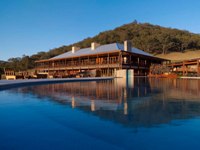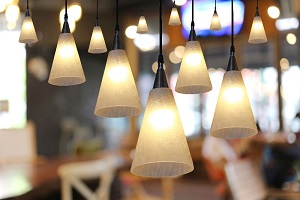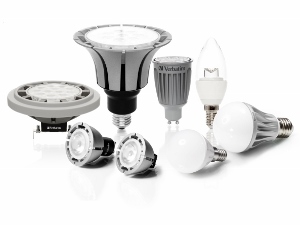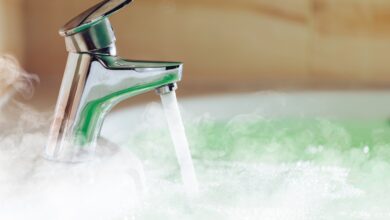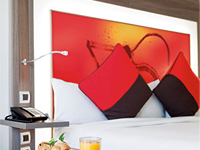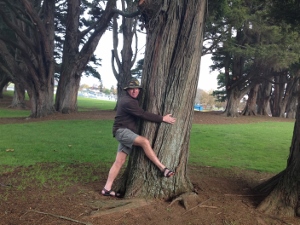Lily Pily Country House B&B
Sometimes it seems there’s nothing new in the world, just old ideas recycled and made modern.
It certainly appears that way to Brian Sherratt who co-owns Lily Pily Country House Bed and Breakfast with his wife Felicity.
Together they have designed and now operate an establishment that is at the very pinnacle of ecologically sensitive tourism. It has been awarded the AAA Tourism Green Star rating as well as winning the highly contested hosted accommodation category at the prestigious mid-north coast tourism awards.
“I find all this quite amusing. My grandmother’s farm (in South Africa) was run exactly the same way as people are talking about now. We have gone back 50 years and it’s all new again,” Brian said. “To me the whole sustainability thing is a way of life, I’ve always been interested in nature from my grandparents and this is a good opportunity just to enjoy nature.
I think you can strike a balance between a comfortable life and environmental impact.”
After winning the tourism award in 2007, the Sherratts said their success was proof that environmentally sensitive and sustainable practices could deliver quality tourism products.

We are committed to ensuring our guests have an unforgettable stay; big experience, small footprint,” they said.
Brian and Felicity took over the 32ha property near Bellingen on the New South Wales mid-north coast in 2002. The derelict farmland once had a house on it that had burnt down, so the Sherratts started again from scratch to build their bed and breakfast. The end result has three luxurious guest suites each with its own private deck overlooking the river and rural scenery. A glorious and comfortable guest lounge with log fire completes the picture.
“The whole place was designed to have minimal impact as far as materials used were concerned, so it has a steel frame zinc roof and exterior walls and the only timber is in the windows and doors,” explained Brian. “There’s very little cost differential if you set up from scratch between doing things in a minimal impact way and a maximum impact way. It perhaps costs a little more at the outset but we got good subsidies and we get power savings through the way the house was built and the hot water and water collection.”
Brian’s favourite feature of Lily Pily is the design of the house itself. Built to take advantage of nature’s gifts it is a solar passive design; the walls and roofs are angled so that sun comes into the house in winter but not in summer. “The shape of the house is very important, most of it is only one room deep,” said Brian. “It is quite a modern Australian angular design and the appearance is very important to us. We wanted to market ourselves as modern Australian,” he said.
 “It makes it easier to fit in with environmental principles if you don’t have pitched roofs; pitched roofs mean you have a south and north side to the roof and more material is used. With our roof we cut down on materials and cut down on environmental impact and made it physically lighter. Plus it is good for solar capture, the roof is particularly placed so we could have solar hot water.”
“It makes it easier to fit in with environmental principles if you don’t have pitched roofs; pitched roofs mean you have a south and north side to the roof and more material is used. With our roof we cut down on materials and cut down on environmental impact and made it physically lighter. Plus it is good for solar capture, the roof is particularly placed so we could have solar hot water.”
However, while the lightness of the roof has environmental advantages, it also caused challenges when it came to installing the solar hot water system. “The roof wasn’t capable of carrying a heavy weight, so we chose a Rheem system because it has slimline panels on the roof that are quite light.”
The concrete slab on which the house is built provides a thermal mass that helps to regulate the temperature inside throughout the year. Terracotta tiles were used on the floor because they are very good at absorbing heat. In winter the tiles warm up with the sun and then release heat at night. The ground temperature is fairly constant all year round and care was taken to make sure the tile adhesive used was a non-insulating type.
The entire house is insulated with fibreglass and Pilkington ComfortPlus glass was used on the northern windows to block the ultra violet rays but allow infrared into the house. This was chosen instead of double-glazing and means there is no problem with fading of furnishings.
Bellingen’s climate, receiving around 1600mm of rain a year, means Lily Pily Country House is able to collect all its own water and opt for high volume output showers and taps. “AAA Tourism Green Stars are quite relaxed about spas and water usage, provided you collect what you use,” said Brian. “Basically the theory is that if the house wasn’t here the water would fall on the ground and run off into the paddocks. Our tanks hold three month’s supply of water and that is highly unlikely to run out. In fact, the CSIRO has predicted that Bellingen is one of the few places in Australia that won’t be affected by climate change,” he said.
As a back up for the solar hot water system, Brian and Felicity installed an electrical boost.
This gets used in the rare event of Lily Pily going two days without seeing the sun. “It costs us a very small amount,” said Brian. To satisfy the AAA star rating assessors (the regular ones not the green ones) Lily Pily has the required reverse cycle air-conditioning units in the guest rooms and lounge. But due to the solar passive design of the house they are hardly ever used. “We have noticed that there is very little difference between our summer and winter electricity costs,” said Brian.
For the Sherratts, sustainable living isn’t only about what goes on inside the house; they care about the surrounding land as well. “When we bought the property we formed a landcare group with our neighbour and we tackled the weeds that were out of control and shored up the riverbanks,” explained Brian. “The Department of Primary Industries helped us design a natural way of restoring the river banks and we planted 3500 trees and 2500 riverside reeds. That part of the project was completed five years ago but since rainforest takes thousands of years to establish you never really finish that kind of job.”
The Bellingen area is becoming known for sustainable practices, not just in tourism but in all sectors of business. Brian Sherratt said this kind of local support is vital if environmental beliefs are to be followed. “There is a circle of activity in Bellingen based on sustainable business, living and tourism. For us to be sustainable we really need the businesses in town to support us. We can’t do it in isolation,” he said.
Want to showcase your green initiatives? Email ([email protected]) or call (07) 5440 5322

